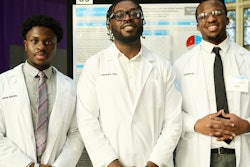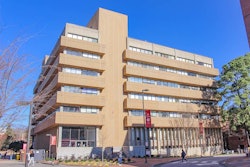The M.D./Ph.D. program of the University of Illinois at Chicago College of Medicine has been awarded a prestigious National Institutes of Health grant and designation as a Medical Scientist Training Program.
With the five-year grant, the UIC College of Medicine joins an elite group of only 41 medical schools nationwide that may use the designation.
“In awarding the grant, the NIH cited the range of opportunities for scientific study as one of the strengths of the UIC program,” said Dr. Larry Tobacman, professor and director of the program.
The grant provides tuition and stipends to students entering the program.
In the Ph.D. portion of the program, students work with distinguished researchers in fields such as neuroscience, molecular biology, pharmacology, microbiology and biophysics, as well as engineering and public health.
UIC’s program was also praised by the NIH for creatively integrating physician-scientist training; for the high caliber and productivity of students in the program; for its success in placing graduates in residency programs; and for implementation of diversity recruitment.
“UIC is a powerhouse in the area of basic medical science research, and Dr. Tobacman is central to our transformation as a premier center of clinical translational research,” said Dr. Joseph Flaherty, dean of the UIC College of Medicine. “This is a great recognition of our work by NIH, and it will also enhance the growth in high-quality applicants to our medical school.”
The UIC College of Medicine has produced physician-scientists with the dual M.D./Ph.D. degrees since the 1920s. In those days, the dual degree was achieved through an informal arrangement with each student. M.D./Ph.D. training at UIC has been run as an organized program with an integrated curriculum since 1986.
Under Tobacman’s leadership for the past four years the program has been enhanced to merge the two very different learning styles that go into training scientists and clinicians.
Candidates spend their first two years completing the regular medical school curriculum while also taking a research methods course and attending weekly seminars offering an overview of bioscience investigation.
Choice of a thesis adviser and an intensive period of original research follow in the second year. In the final years of the program, candidates rejoin other medical students to complete the clinical phase of medical school.
“Our aim is to produce a physician who can apply clinical understanding to the study of disease and a scientist who sees beyond the test-tube to apply in-depth thinking and understanding to the whole patient,” said Roberta Bernstein, program coordinator.
Tobacman said the consistent support of the UIC College of Medicine has made it possible to build a program that can attract and train students “who will define the future of medical science.”
–Associated Press
© Copyright 2005 by DiverseEducation.com



















